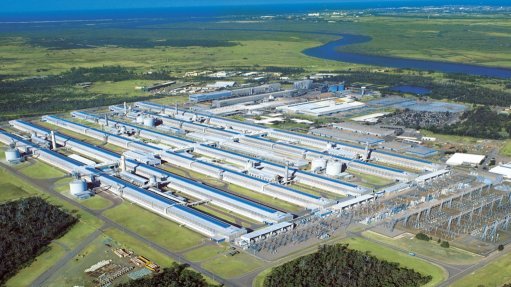Minerals Act to balance sustainability, investment


BRUCE DICKINSON The lessons gleaned from the MPRDA and considerations from mining companies will be crucial to attracting investment in the South African mining sector
The pivotal Mineral and Petroleum Resources Development Act (MPRDA) – legislation introduced in 2004 – marked a transformative shift in South Africa's mining landscape, and redefined mineral resource management, transferring mineral rights from private entities to State custodianship, says law firm Webber Wentzel partner Bruce Dickinson.
Despite its goal and efforts to facilitate equitable access and redistribute mineral wealth, two decades later – as global mining companies target significant acquisitions in the region – the implications of the MPRDA on investment dynamics have come under renewed scrutiny.
The MPRDA is a cornerstone of South Africa’s post-Apartheid economic strategy, embedding black economic empowerment requirements to rectify historical imbalances. While this led to increased local participation in mining, it introduced complexities for foreign investors, who now have to navigate these new partnership and ownership paradigms.
This regulation, designed to boost social equity, inadvertently injected a degree of investor caution owing to the perceived risks and costs associated with compliance and potential policy shifts, he says.
Environmental, social and governance (ESG) standards also took centre stage under the MPRDA, mandating stringent adherence to sustainable mining practices. These provisions were “forward-thinking” at inception, aligning South Africa with global shifts towards environmental conservation and community welfare in mining operations.
While the MPRDA’s emphasis on ESG has demonstrably improved environmental practices and community welfare, the associated compliance and operational hurdles have been a double-edged sword – raising the bar for environmental and community stewardship, while potentially deterring all but the most committed investors from entering the market.
“Looking at the landscape as it has evolved over several years, and the strategies employed by global mining companies, highlights the dichotomy: [we see] spinning off South African assets to mitigate risks associated with local operations.”
Dickinson notes that this strategy underscores a cautious approach towards the complexities introduced by the MPRDA. Such moves might be seen as a bid to secure value and streamline operations, without inheriting the intricate web of regulatory and social obligations tied to South African assets.
“This scenario begs a larger question about the future of mining investment in South Africa:Does the MPRDA framework support the kind of environment that attracts large-scale, foreign investment?”
Further, he asserts that, while it has undeniably fostered a more equitable industry, the Act’s implications for operational certainty and investment appeal cannot be overlooked, considering investors seek stable, predictable and competitive regulatory regimes, with the ongoing amendments and debates surrounding the MPRDA suggesting a regulatory environment in flux, unsettling investors.
However, Dickinson avers that the MPRDA still has merit. The Act’s emphasis on social and environmental responsibilities should be viewed as a strength in an era where ESG factors significantly influence investment decisions. “The key challenge for South Africa will be torefine the Act to balance investor needs with national interests.”
ForSouth Africa to attract mining investment, the lessons gleaned from the MPRDA’s impact, and the strategic considerations of global mining companies, will be crucial.
He says that the country's ability to adapt its regulations to foster both local development and global competitiveness will dictate the future landscape of mining investments. Therefore, balancing these will determine whether South Africa canregainits status as a top mining destination while honouring its commitment to social and environmental stewardship.
This nuanced navigation between global investment practices and local social and economic development goals will define the next chapter of South Africa's mining industry – a chapter that all stakeholders in the mining industry should help author, he concludes.
Article Enquiry
Email Article
Save Article
Feedback
To advertise email advertising@creamermedia.co.za or click here
Press Office
Announcements
What's On
Subscribe to improve your user experience...
Option 1 (equivalent of R125 a month):
Receive a weekly copy of Creamer Media's Engineering News & Mining Weekly magazine
(print copy for those in South Africa and e-magazine for those outside of South Africa)
Receive daily email newsletters
Access to full search results
Access archive of magazine back copies
Access to Projects in Progress
Access to ONE Research Report of your choice in PDF format
Option 2 (equivalent of R375 a month):
All benefits from Option 1
PLUS
Access to Creamer Media's Research Channel Africa for ALL Research Reports, in PDF format, on various industrial and mining sectors
including Electricity; Water; Energy Transition; Hydrogen; Roads, Rail and Ports; Coal; Gold; Platinum; Battery Metals; etc.
Already a subscriber?
Forgotten your password?
Receive weekly copy of Creamer Media's Engineering News & Mining Weekly magazine (print copy for those in South Africa and e-magazine for those outside of South Africa)
➕
Recieve daily email newsletters
➕
Access to full search results
➕
Access archive of magazine back copies
➕
Access to Projects in Progress
➕
Access to ONE Research Report of your choice in PDF format
RESEARCH CHANNEL AFRICA
R4500 (equivalent of R375 a month)
SUBSCRIBEAll benefits from Option 1
➕
Access to Creamer Media's Research Channel Africa for ALL Research Reports on various industrial and mining sectors, in PDF format, including on:
Electricity
➕
Water
➕
Energy Transition
➕
Hydrogen
➕
Roads, Rail and Ports
➕
Coal
➕
Gold
➕
Platinum
➕
Battery Metals
➕
etc.
Receive all benefits from Option 1 or Option 2 delivered to numerous people at your company
➕
Multiple User names and Passwords for simultaneous log-ins
➕
Intranet integration access to all in your organisation



















